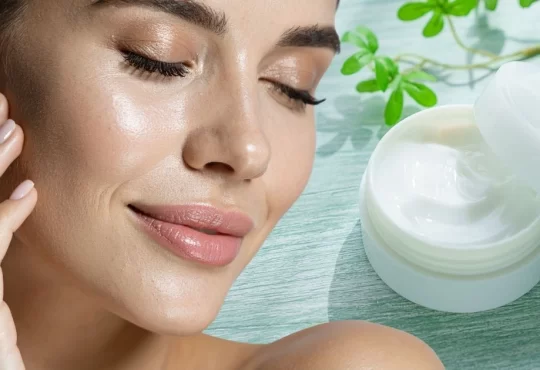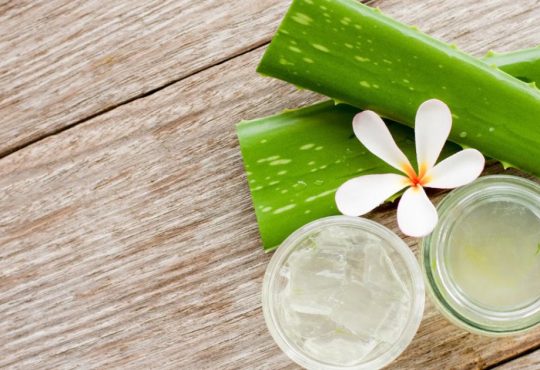Sensitive skin can often feel like a complicated puzzle, requiring careful attention and the proper routine to keep it calm, balanced, and healthy. We’ve all been there—when your skin flares up unexpectedly before an important event like a date, job interview, or night out. But don’t worry; with a skincare routine tailored explicitly for sensitive skin, you can prevent flare-ups, soothe irritation, and maintain a calm, glowing complexion. Let’s break down the best skincare routine for sensitive skin, offering tips and products that provide gentle yet effective care.
The Importance of a Skincare Routine for Sensitive Skin
A skincare routine tailored for sensitive skin is essential to maintaining a healthy, balanced complexion. Sensitive skin is prone to irritation, redness, and discomfort, making it more vulnerable to environmental stressors, harsh products, and allergens. Individuals with sensitive skin can effectively minimize flare-ups and calm skin by establishing a consistent routine with gentle, soothing products. A well-rounded skincare regimen helps restore the skin’s natural barrier, protecting against pollutants, extreme weather, and other factors exacerbating sensitivity. Regularly using the right products can promote hydration, which is crucial for maintaining a soft, smooth, and resilient complexion.
Moreover, sensitive skin requires special care and attention when choosing skincare products. Harsh ingredients such as fragrances, alcohol, and certain preservatives can trigger adverse reactions, making selecting mild, non-irritating, and hypoallergenic formulations essential. Establishing a skincare routine addresses the immediate needs of calming and protecting sensitive skin and supports long-term skin health. With proper exercise, individuals with sensitive skin can reduce the risk of irritation, prevent premature aging, and achieve a radiant, even-toned complexion.
The Ultimate Skincare Routine for Sensitive Skin
1. Remove Makeup the Gentle Way
When your skin is sensitive, removing makeup without causing additional irritation or friction is crucial. Traditional makeup removers can sometimes be too harsh, especially when used vigorously, leading to redness and discomfort. Instead, opt for a gentle makeup remover explicitly formulated for sensitive skin. Start using a makeup remover designed for the eyes, as the delicate skin around your eyes is prone to irritation.
Soak a cotton pad with the remover and gently press it against your eyes for a few seconds to dissolve your makeup. This gentle technique helps avoid tugging or rubbing. For stubborn waterproof mascara or long-wear makeup, look for a remover with anti-inflammatory ingredients such as Pro-Vitamin B5. This ingredient not only lifts away makeup effectively but also helps soothe and heal the skin by promoting skin regeneration.
Tip: Be gentle around your eyes, as they are particularly sensitive. Always choose makeup removers free of artificial fragrances and harsh chemicals, which can irritate sensitive skin.
2. Cleanse Your Skin Happily
Many people with sensitive skin feel tempted to skip the cleansing step, thinking it may further irritate their skin. However, leaving makeup, dirt, and impurities on your skin can worsen sensitivity by clogging pores and triggering breakouts. Cleansing is an essential step to maintaining skin health. Select a cleanser for sensitive skin, like Simple Water Boost Micellar Gel Wash. This product is perfect for sensitive skin because it uses micellar technology to attract dirt, oil, and makeup without stripping the skin of essential moisture.
The gentle cleansing bubbles lift impurities from the skin’s surface while hydrating it, ensuring your skin feels clean and refreshed. Another great option for sensitive skin is a product containing PENTAVITIN. This plant extract provides deep hydration, restores moisture balance, and repairs the skin’s protective barrier. It’s particularly beneficial for sensitive skin that reacts negatively to environmental stressors like temperature changes and pollution.
Tip: Use warm water (not hot) when rinsing your face to avoid further irritation. Pat your skin dry with a soft towel—never rub it.
3. Relieve and Reduce Redness
If your sensitive skin is prone to redness, it can be frustrating to deal with the inflamed, flushed appearance. The cause of this redness is often an inflammatory response to external factors like UV exposure, pollution, artificial fragrances, or stress. When irritated, the skin reacts by sending blood to the surface to promote healing, which can leave the skin looking red and blotchy. To calm redness, look for skincare products that contain anti-inflammatory ingredients, such as bisabolol, a component derived from chamomile.
Bisabolol is known for reducing redness and inflammation, making it an excellent choice for sensitive skin. A cool compress can also be very effective in reducing redness. Dampen a washcloth with cool water and place it gently on your face after cleansing to soothe the skin. Follow up with a soothing moisturizer like Simple Water Boost Skin Quench Sleeping Cream. This product will hydrate your skin, help reduce irritation, and calm inflammation overnight.
Tip: If your skin feels hot and red, skip products with alcohol or artificial fragrances, as these can aggravate irritation.
4. Moisturize with Your Sensitive Skin in Mind
Moisturizing is one of the most crucial steps in any skincare routine, especially for sensitive skin. The right moisturizer can protect your skin’s natural barrier, keep it hydrated, and shield it from environmental pollutants. When choosing a moisturizer, look for one specifically formulated for sensitive skin and free from harsh chemicals, fragrances, and dyes. A non-comedogenic moisturizer hydrates your skin without clogging pores. Creams containing gentle hydrating ingredients such as glycerin and ceramides are fantastic for sensitive skin. Applying moisturizer to slightly damp skin can help lock in extra moisture and prevent dehydration throughout the day.
Tip: Always warm the moisturizer between your palms before applying it to your face. This helps the product absorb more easily and reduces any unnecessary friction.
5. Choose the Best Face Scrub for Sensitive Skin
Exfoliating is essential for removing dead skin cells, but using a gentle scrub for sensitive skin is also essential. Harsh scrubs with large exfoliating particles can cause microtears in the skin and lead to redness, irritation, and increased sensitivity. Instead, opt for a scrub that contains fine, soft particles or an enzymatic exfoliator that gently breaks down dead skin cells without abrasive action.
Scrubs with soothing ingredients like Pro-Vitamin B5 and Vitamin E are ideal for gently exfoliating while nourishing and softening the skin. If you’re new to exfoliating, always do a patch test before using any product to ensure your skin won’t react negatively. Gently massage a small amount of face scrub onto damp skin in circular motions. Avoid excessive pressure to prevent irritation. Rinse with lukewarm water and pat dry after exfoliating.
Tip: Limit exfoliation to once a week to avoid over-exfoliating, which can strip your skin of its natural oils and lead to increased sensitivity.
6. Relax and Take Care of Your Skin
Stress and a busy lifestyle can significantly affect sensitive skin, making it more prone to flare-ups, dryness, and irritation. Relaxing and unwinding can help prevent stress-related skin issues and promote overall health. One great way to relax while improving your skin is through facial massage. A DIY facial massage can be done during any part of your skincare routine and is especially beneficial after applying a moisturizer, serum, or face cream.
Massage helps boost circulation, reduce puffiness, and promote a healthy glow. To perform a facial massage, use your regular skincare product and massage it into your skin in gentle, circular motions. Focus on the T-zone, temples, and neck. Adding a scalp massage after cleansing is also a great way to release tension and promote relaxation.
Tip: Always use clean hands and a gentle touch when massaging your face to avoid irritation.
7. Protect Your Skin from Environmental Stressors
Sensitive skin is often reactive to environmental stressors, such as pollution, UV rays, extreme weather conditions, and artificial chemicals. Protecting your skin from these irritants is essential to any skincare routine. Use a sunscreen formulated for sensitive skin and is free of harsh chemicals. Look for mineral-based sunscreens that contain ingredients like zinc oxide and titanium dioxide, as they are less likely to irritate sensitive skin than chemical sunscreens. In addition to sunscreen, consider using a barrier cream that shields the skin from pollution and other harmful environmental factors. These creams help strengthen the skin’s natural barrier, keeping irritants out while maintaining hydration.
Tip: Always apply sunscreen as the last step in your skincare routine and reapply throughout the day, especially outdoors.
Achieve Radiant, Healthy Skin with the Right Routine
The best skincare routine for sensitive skin isn’t about using the most products or expensive brands—it’s about understanding your skin’s needs and choosing gentle, effective, and soothing products. By following these steps, from gentle makeup removal to using calming ingredients and incorporating relaxation techniques, you can help keep your sensitive skin happy, healthy, and radiant. Remember, consistency is key, and with the proper routine, you can prevent flare-ups and enjoy skin that feels calm, comfortable, and beautiful every day.
Whether you have a complete skincare arsenal or a minimalist approach, these tips will help ensure your sensitive skin stays protected, hydrated, and balanced. Make your skin a priority, and watch it respond with a calm, glowing complexion, ready to face whatever life throws its way.





